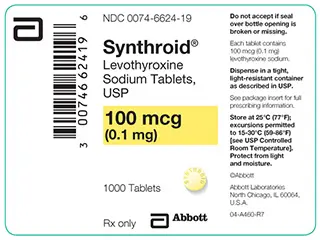Synthroid, with the active ingredient levothyroxine, is a synthetic form of thyroxine, a hormone naturally produced by the thyroid gland. It is sold under various brand names such as Lethyrox, Eltroxin, Evotrox, Thyrax, Euthyrox, Levaxin, L-thyroxine, Thyrox, Eutirox, and Levoxyl. Synthroid was first manufactured in 1955 and has since become a cornerstone treatment for hypothyroidism.
Hypothyroidism is a condition where the thyroid gland fails to produce enough thyroxine, which is essential for regulating the body's metabolism. Without adequate levels of this hormone, individuals may experience a range of symptoms, including fatigue, slow speech, weight gain, poor growth, dry and thickened skin, hair loss, and heightened sensitivity to cold. Synthroid works by replenishing the missing thyroxine, helping restore the body's normal functions.
The medication is safe and effective when used as prescribed, with noticeable improvement in symptoms typically occurring within a few weeks. Synthroid is commonly taken once daily, usually in the morning, on an empty stomach for optimal absorption. It is vital to follow your doctor's instructions carefully to achieve the best therapeutic outcome.
Synthroid is not addictive, but consistent adherence to the prescribed dosage and schedule is essential. Adjusting the dosage without consulting a healthcare provider can affect its effectiveness or lead to adverse effects. Patients with specific health conditions such as heart disease, diabetes, or adrenal disorders should discuss their medical history with their doctor before starting Synthroid.
This medication is suitable for long-term use and plays a critical role in managing hypothyroidism, allowing individuals to lead a healthy, active life.


